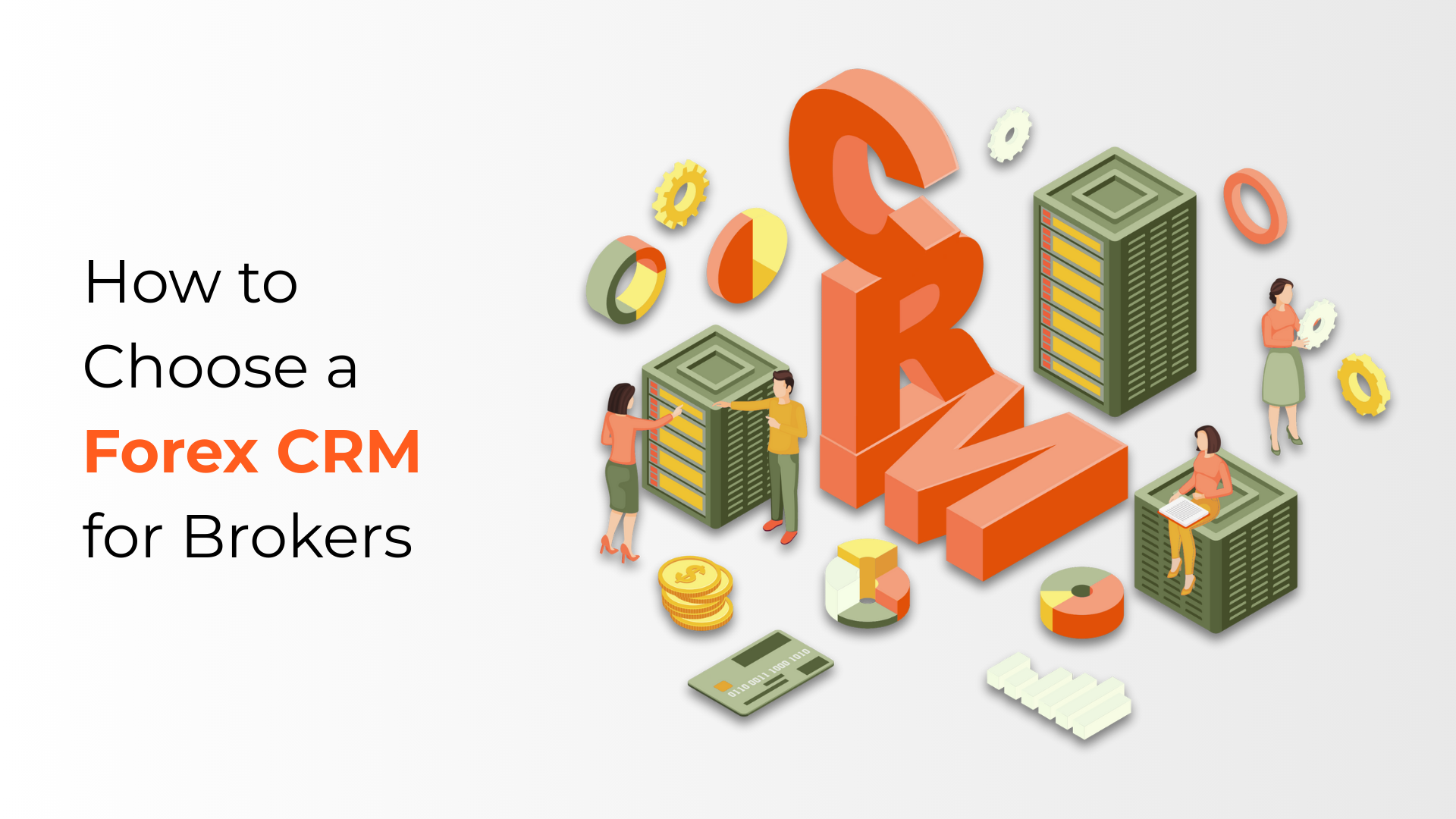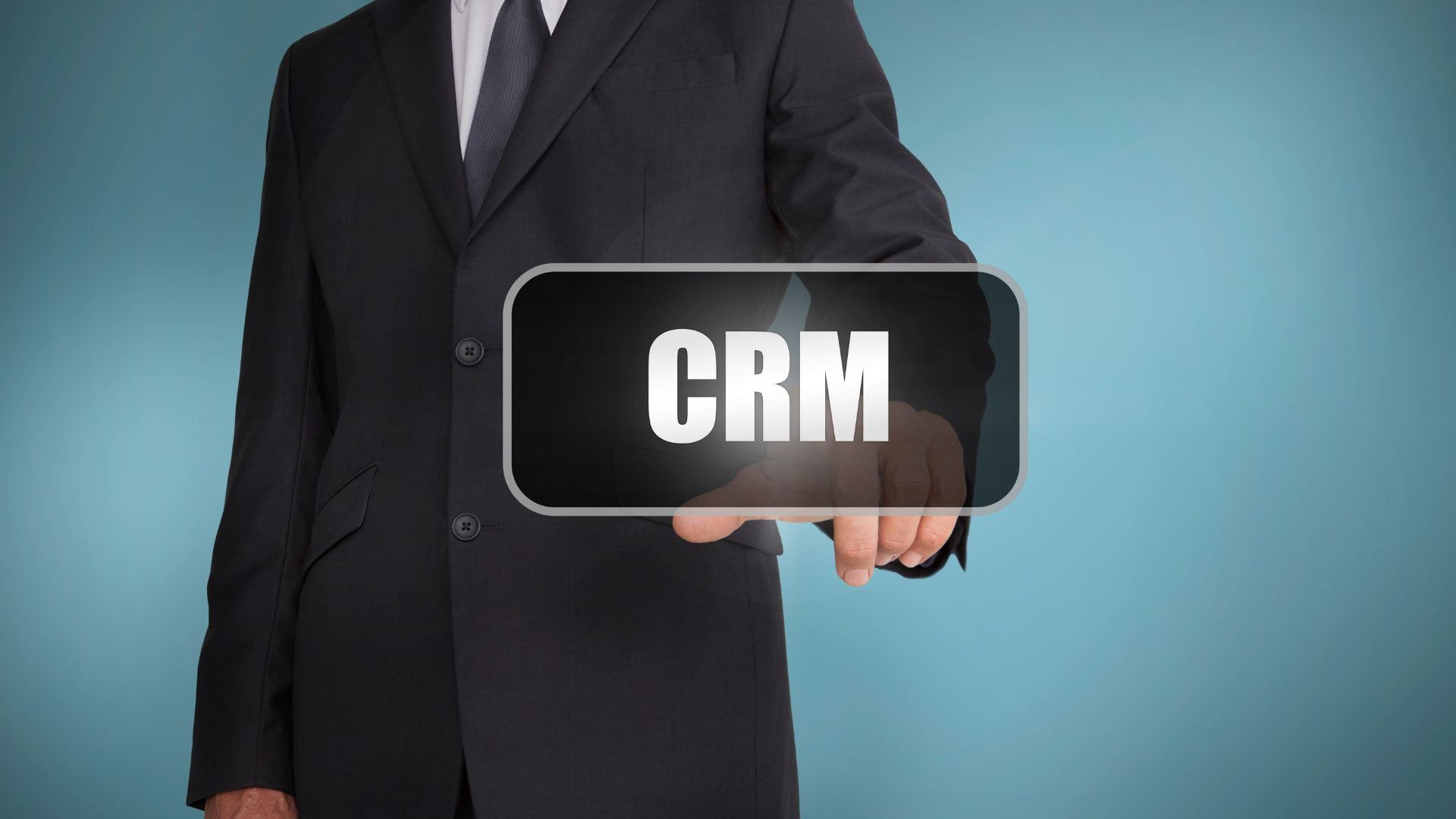In the competitive world of forex brokerage, client relationship management (CRM) plays a
pivotal role. It's the backbone of a successful brokerage, streamlining operations and
enhancing client relationships.
But how do you choose the right forex CRM for your brokerage?
This guide will help you navigate the complex landscape of forex CRM solutions . It will
give you the most important features, advantages and things to think about when picking a
CRM for your forex brokerage.
From client onboarding to compliance management, a good CRM can change things to your
brokerage operations. It can also provide valuable insights into client behavior, helping
you refine your marketing and retention strategies.
This guide will help you choose the right forex CRM, no matter how experienced you are as a
forex broker or how new you are to the business. Let's get started.
Understanding Forex CRM and Its Importance
Forex CRM, or Client Relationship Management for forex brokers (CRM for forex brokers), is a
specialized tool. It helps brokers manage client interactions, data, and processes efficiently.
The importance of a forex CRM cannot be overstated. It enhances client relationships by
providing brokers with valuable insights and streamlined processes.
In the fast-paced forex industry, maintaining strong client relationships is crucial. A good CRM
provides the infrastructure to support these relationships.
Furthermore, a forex CRM integrates various operations. This integration includes trade
monitoring, compliance management, and marketing initiatives, making it indispensable for modern
brokerages.
Key Features of an Effective Forex CRM
Choosing the right CRM involves understanding key features. These ensure a system meets the
brokerage's specific needs.
A top-tier forex CRM should include:
-
Client onboarding and compliance management
-
Trade monitoring and back-office integration
-
Marketing and client retention tools
-
High data security and privacy
-
Automation and customization options
-
User-friendly interface and mobile accessibility
-
Multi-level IB management
Each feature plays a vital role. Together, they enhance efficiency
and client satisfaction.
For instance, automation reduces manual tasks, minimizing errors and
freeing up resources. Customization allows tailoring of the CRM to fit unique brokerage
operations. Additionally, seamless integration with other platforms ensures smooth data
flow. This is essential for comprehensive client insights and efficient operational
management.
Client Onboarding and Compliance Management
Client onboarding is vital in forex CRM. It sets the tone for client-broker relationships. A
streamlined process ensures swift and easy account setup.
Compliance management is equally crucial. Forex markets are heavily regulated, and a CRM must
aid in maintaining compliance. Features should include KYC (Know Your Customer) support.
Efficient CRMs offer automated compliance checks, reducing errors and enhancing accuracy.
This automation facilitates adherence to regulations while minimizing administrative burdens
for brokers.
Trade Monitoring and Back-Office Integration
A reliable CRM needs robust trade monitoring capabilities. It should provide real-time
insights into trading activities. This feature helps brokers make informed decisions
swiftly.
Back-office integration is another core feature. It ensures that the CRM system works
harmoniously with existing brokerage systems. This integration supports seamless data
transfer.
Integrating trading platforms and back-office solutions enhances operational efficiency.
Brokers can manage trades and client data from a single interface, streamlining processes
significantly.
Marketing and Client Retention Tools
Marketing tools within a CRM boost client acquisition and retention. These tools help
brokers run targeted campaigns, enhancing client engagement.
Effective CRM systems also track client interactions. They provide insights that help in
personalizing client experiences and offers.
Retention tools are crucial for sustaining client relationships. By analyzing client
behavior, CRMs assist brokers in developing strategies to maintain client loyalty and reduce
churn.
Security and Privacy Considerations
Security is paramount in choosing a forex CRM. Protecting client data maintains trust and
ensures compliance with regulations. Brokers must assess a CRM's security features thoroughly.
Privacy considerations go hand-in-hand with security. A solid CRM should offer data encryption
and secure access controls. This protects sensitive information from unauthorized access.
It's also critical for a CRM to support data privacy laws like GDPR. Compliance with such
regulations prevents potential fines and liabilities. Brokers must ensure the CRM provider
regularly updates its security protocols to tackle evolving threats.
Data breaches can damage a broker’s reputation severely. Thus, ensuring robust security measures
is non-negotiable for sustaining client confidence and safeguarding business interests.
The Role of Automation and Customization
Automation in a forex CRM reduces manual errors and increases efficiency. By automating
repetitive tasks, brokers save time and resources. This focus enhances overall productivity
within brokerage operations.
Customization options are equally important in a forex CRM. Brokers can tailor features to meet
their specific requirements. This flexibility allows them to address unique challenges and
opportunities in their business.
A CRM offering extensive automation eases client relationship management. Automated workflows
streamline processes, from onboarding to account management. This ensures a seamless experience
for both brokers and clients.
Customization also supports adaptability to changing market conditions. Brokers can modify their
CRM as their business scales or diversifies. This ensures they always have the tools needed to
succeed.
User Experience and Mobile Accessibility
User experience is crucial for any forex CRM. A user-friendly interface ensures that brokerage
staff can quickly learn and navigate the system. This ease of use translates to fewer errors and
higher staff efficiency.
Mobile accessibility is another key factor. Brokers need to manage client relationships on the
go. A mobile-optimized CRM allows them to do so from any location, ensuring they never miss a
critical update.
A CRM that prioritizes user experience and mobile capability enhances overall brokerage
effectiveness. It empowers brokers and staff to respond swiftly to client needs and market
changes, delivering superior service.
Scalability and Customer Support
Scalability is vital for growing brokerages. A forex CRM should seamlessly accommodate an
expanding client base. As your business grows, the CRM needs to handle more data and users
without compromising performance.
Effective customer support is equally important. A responsive support team can resolve issues
quickly, minimizing disruptions. This support helps ensure that brokers can maintain their
operations smoothly.
Choosing a CRM with strong scalability and excellent customer support is crucial. It sets your
brokerage up for long-term success by adapting to growth and offering reliable assistance.
Regulatory Compliance and Reporting
Regulatory compliance is a crucial aspect of forex brokerage operations. A reliable forex CRM
aids in adhering to industry regulations. This ensures you remain compliant and avoid costly
penalties.
Effective reporting features within a CRM simplify data management. They allow brokers to
generate necessary reports for audits with ease. This functionality streamlines the compliance
process significantly.
Choose a CRM that offers robust compliance and reporting tools. These tools not only protect
your brokerage from risks but also enhance operational transparency. As regulations evolve,
having adaptable reporting features is invaluable.
Evaluating CRM Costs and ROI
Assessing the costs of a CRM is critical for brokers. Initial expenses should be weighed against
long-term benefits. Consider both direct and hidden costs involved.
Focus on the potential Return on Investment (ROI) that a CRM offers. A well-implemented CRM can
boost efficiency and client satisfaction. These improvements translate into higher profitability
over time.
Evaluate different pricing models from various CRM providers. Some offer flat rates, while
others charge per user or feature. Understanding these nuances aids in making an informed
decision.
Consider the CRM's ability to scale with your brokerage. As your business grows, you need a CRM
that can evolve. This adaptability ensures that your investment continues to pay dividends long
term.
Conclusion: Making the Right Choice for Your Brokerage
Choosing the right forex CRM is
pivotal for brokerage success. The right CRM enhances client management and boosts efficiency.
It's a decision that impacts your operational and business strategies.
Understanding your brokerage needs is a crucial first step. This involves aligning the CRM's
features with your goals. Customization capabilities in a CRM can ensure this alignment.
Factor in long-term growth and regulatory demands when evaluating CRM options. A scalable and
compliant CRM keeps your brokerage future-ready. These factors will ensure seamless operational
continuity.
Lastly, opt for a CRM provider who offers robust support. Continuous updates and training from
the provider are key. This ongoing support maximizes your CRM's effectiveness and aids smooth
transitions.

